
This Cloud Cisticola defied the gloomy weather conditions to add its voice to those of the other grassland birds.
Ever since I bought Mike Mills's book The Special Birds of Angola during lockdown, visiting that country has been a wistful dream. The other dream is complete national coverage of the SABAP2 project and while somewhat distant in another dimension, it is easier to do something about that. So, while exploring the coverage maps of South Africa, I was intrigued to discover that there is a village called Angola in the Eastern Cape (at least according to Google, although they may be more confused with the name changes of towns than the rest of us). A large swathe of virgin pentads lay between Angola and the Eastern Cape Parks and Tourism Agency (ECPTA) nature reserve of Tsolwana. I would thus vicariously be able to realize both dreams: adding to SABAP2 coverage and visiting an Angola.
The route chosen by Google Maps to Angola village was interesting at times and certainly not for sedan vehicles.
The sceptically minded might brand the ECPTA marketing divisions of the province as over-egging things somewhat through their use of words such as 'frontier country' and 'friendly? But friendly is exactly the adjective to describe the rural regions from Tarkastad through Komani (still known as Queenstown, according to Google) to Elliot (or Khowa, according to road signs). Rustic homesteads are a feature of the rolling hills here and vehicles are few and far between. Thus, the presence of Charlie, my son and co-surveyor, and I attracted much attention and many friendly waves. Charlie was designated chief waver, a task ably accomplished between entering my bird observations into the BirdLasser app.
هذه القصة مأخوذة من طبعة May/June 2022 من African Birdlife.
ابدأ النسخة التجريبية المجانية من Magzter GOLD لمدة 7 أيام للوصول إلى آلاف القصص المتميزة المنسقة وأكثر من 9,000 مجلة وصحيفة.
بالفعل مشترك ? تسجيل الدخول
هذه القصة مأخوذة من طبعة May/June 2022 من African Birdlife.
ابدأ النسخة التجريبية المجانية من Magzter GOLD لمدة 7 أيام للوصول إلى آلاف القصص المتميزة المنسقة وأكثر من 9,000 مجلة وصحيفة.
بالفعل مشترك? تسجيل الدخول
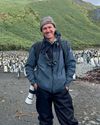
EXPLORING NEW HORIZONS
Keith Barnes, co-author of the new Field Guide to Birds of Greater Southern Africa, chats about the long-neglected birding regions just north of the Kunene and Zambezi, getting back to watching birds and the vulture that changed his life.
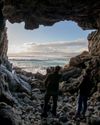
footloose IN FYNBOS
The Walker Bay Diversity Trail is a leisurely hike with a multitude of flowers, feathers and flavours along the way.
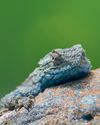
Living forwards
How photographing birds helps me face adversity
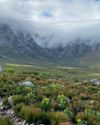
CAPE crusade
The Cape Bird Club/City of Cape Town Birding Big Year Challenge
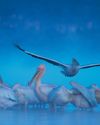
water & WINGS
WATER IS LIFE. As wildlife photographer Greg du Toit knows better than most.
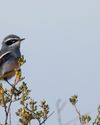
winter wanderer
as summer becomes a memory in the south, the skies are a little quieter as the migrants have returned to the warming north. But one bird endemic to the southern African region takes its own little winter journey.
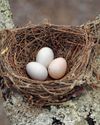
when perfect isn't enough
Egg signatures and forgeries in the cuckoo-drongo arms race

Southern SIGHTINGS
The late summer period naturally started quietening down after the midsummer excitement, but there were still some classy rarities on offer for birders all over the subregion. As always, none of the records included here have been adjudicated by any of the subregion's Rarities Committees.

flood impact on wetland birds
One of the features of a warming planet is increasingly erratic rainfall; years of drought followed by devastating floods. Fortunately, many waterbirds are pre-adapted to cope with such extremes, especially in southern Africa where they have evolved to exploit episodic rainfall events in semi-arid and arid regions. But how do waterbirds respond to floods in areas where rainfall - and access to water - is more predictable? Peter Ryan explores the consequences of recent floods on the birds of the Western Cape's Olifants River valley.
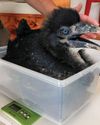
a star is born
It’s every producer’s dream to plan a wildlife television series and pick the right characters before filming.